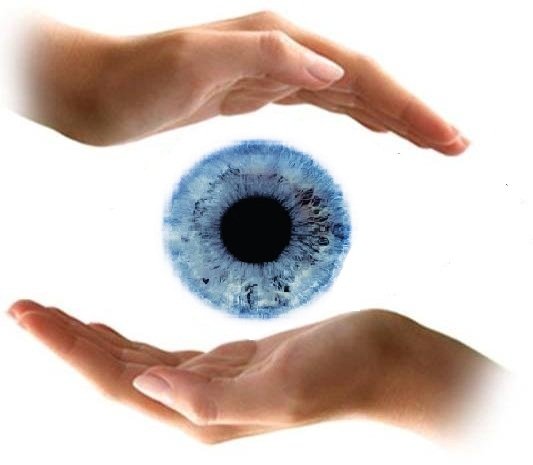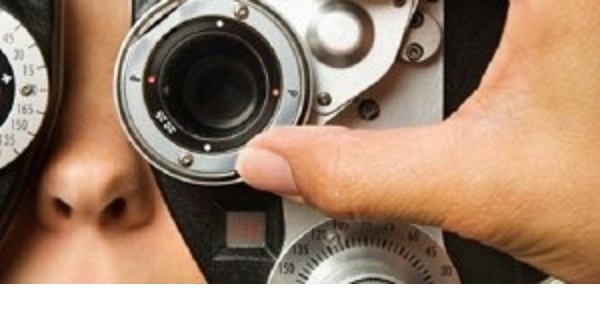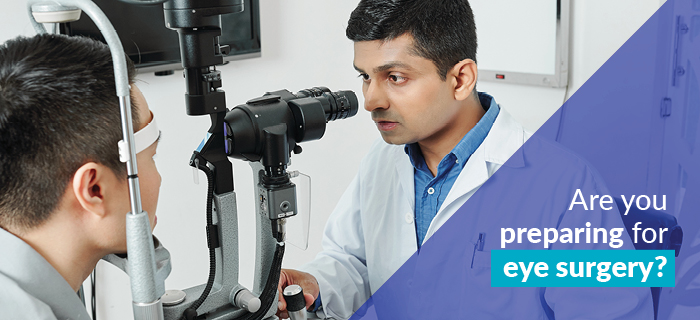Vision Care
Vision Vitality Expert Tips for Optimal Eye Health

Unveiling the Secrets to Vision Vitality: Expert Tips for Optimal Eye Health
Understanding the Importance of Eye Health
Your eyes are precious windows to the world, allowing you to see and experience the beauty around you. Yet, it’s easy to take them for granted until vision problems arise. Understanding the importance of eye health is the first step towards preserving your precious gift of sight and ensuring a lifetime of visual vitality.
Nourish Your Eyes with a Healthy Diet
Just like the rest of your body, your eyes benefit from a balanced diet rich in nutrients that support vision health. Incorporate foods high in antioxidants, vitamins A, C, and E, omega-3 fatty acids, and zinc into your meals. Think colorful fruits and vegetables, leafy greens, nuts, seeds, and fatty fish. These nutrients help protect your eyes from age-related damage and maintain optimal visual function.
Protect Your Eyes from Harmful UV Rays
Exposure to ultraviolet (UV) rays from the sun can contribute to various eye problems, including cataracts, macular degeneration, and photokeratitis (sunburn of the cornea). Protect your eyes by wearing sunglasses that block 100% of UVA and UVB rays whenever you’re outdoors, even on cloudy days. Look for sunglasses labeled with UV 400 or 100% UV protection to ensure adequate shielding for your eyes.
Practice Proper Eye Hygiene and Safety
Maintaining good eye hygiene and safety practices is essential for preventing eye infections and injuries. Wash your hands frequently, especially before touching your eyes or handling contact lenses. Follow proper contact lens care and hygiene guidelines, including cleaning, disinfecting, and replacing lenses as recommended by your eye care provider. Additionally, wear protective eyewear when engaging in activities that pose a risk of eye injury, such as sports, DIY projects, or working with hazardous materials.
Give Your Eyes a Break from Digital Screens
In today’s digital age, many of us spend extended periods staring at screens—whether it’s computers, smartphones, tablets, or televisions. Prolonged screen time can lead to digital eye strain, characterized by symptoms like dry eyes, blurry vision, headaches, and neck or shoulder pain. To alleviate digital eye strain, practice the 20-20-20 rule: every 20 minutes, take a 20-second break to look at something 20 feet away. Additionally, adjust your screen settings, position your monitor at eye level, and use artificial tears as needed to keep your eyes lubricated.
Schedule Regular Eye Exams
Routine eye exams are crucial for maintaining optimal eye health and detecting potential problems early on. Schedule comprehensive eye exams with an eye care professional, such as an optometrist or ophthalmologist, at least once a year or as recommended based on your age, risk factors, and overall eye health. During the exam, your eye care provider will assess your vision, screen for eye diseases, and prescribe corrective lenses or treatment as needed to keep your eyes healthy and your vision clear.
Stay Hydrated for Healthy Eyes
Proper hydration is essential for overall health, including eye health. Drinking an adequate amount of water helps maintain the moisture balance
Eye Care Basics Simple Hygiene Tips for Better Vision
Understanding the Importance of Eye Hygiene
Maintaining good eye hygiene is essential for preserving vision and preventing eye-related issues. By adopting simple yet effective hygiene tips, you can promote better eye health and clarity of vision.
Daily Eye Hygiene Routine
Establishing a daily eye hygiene routine is crucial for keeping your eyes clean and healthy. Start by washing your hands thoroughly with soap and water before touching your eyes. This helps prevent the transfer of dirt and bacteria to your eyes, reducing the risk of infections.
Proper Contact Lens Care
If you wear contact lenses, it’s important to follow proper care practices to avoid eye irritation and infections. Always wash your hands before handling your lenses and ensure they are properly cleaned and disinfected before each use. Additionally, replace your contact lens case regularly to prevent the buildup of bacteria.
Avoid Rubbing Your Eyes
While it may be tempting to rub your eyes when they feel tired or itchy, this can actually do more harm than good. Rubbing your eyes can transfer bacteria from your hands to your eyes, increasing the risk of infections. Instead, use eye drops to relieve dryness or irritation, and avoid touching your eyes unnecessarily.
Protect Your Eyes from UV Exposure
Exposure to ultraviolet (UV) rays from the sun can damage your eyes and increase the risk of cataracts and other eye conditions. Whenever you’re outdoors, wear sunglasses that offer 100% UV protection to shield your eyes from harmful rays. Additionally, consider wearing a wide-brimmed hat for added protection.
Practice the 20-20-20 Rule
Staring at screens for extended periods can cause eye strain and discomfort. To prevent this, follow the 20-20-20 rule: every 20 minutes, take a 20-second break and look at something 20 feet away. This helps reduce eye fatigue and allows your eyes to relax and refocus.
Stay Hydrated
Drinking plenty of water is essential for maintaining overall health, including the health of your eyes. Proper hydration helps prevent dry eyes and keeps the eyes lubricated and comfortable. Aim to drink at least 8 glasses of water per day, and consider using a humidifier in dry environments to add moisture to the air.
Eat a Balanced Diet
Nutrition plays a key role in eye health, so be sure to include foods rich in vitamins and nutrients that support good vision. Dark leafy greens, colorful fruits and vegetables, and omega-3 fatty acids found in fish are all beneficial for eye health. Consider taking a daily supplement to ensure you’re getting all the nutrients your eyes need.
Get Regular Eye Exams
Regular eye exams are essential for detecting and treating eye conditions early, before they can cause permanent damage to your vision. Schedule an eye exam with your optometrist at least once a year, or more frequently if you have existing eye conditions or risk factors.
Practice Proper Sleep Hygiene
Getting enough sleep is vital for overall health, including the health of your eyes. Aim for 7-8 hours of sleep per night, and practice good sleep
Optimizing Eye Health: Strategies for Clear Vision and Wellness

Nurturing Clear Vision: A Guide to Optimizing Eye Health
Maintaining optimal eye health is crucial for overall well-being, and adopting proactive strategies can significantly contribute to clear vision and long-term eye wellness. Let’s explore key aspects and practices that play a pivotal role in nurturing and optimizing eye health.
Regular Eye Examinations: The Foundation of Eye Care:
Scheduling regular eye examinations is fundamental to preserving eye health. Comprehensive eye exams not only assess visual acuity but also screen for potential eye conditions and systemic health issues. Early detection through routine exams allows for timely intervention, preventing complications and preserving clear vision.
Protective Measures Against Harmful UV Rays:
Exposure to ultraviolet (UV) rays poses a risk to eye health. Prolonged exposure may contribute to conditions like cataracts and macular degeneration. Wearing sunglasses that block UVA and UVB rays is a simple yet effective measure to shield the eyes from harmful sun exposure and promote long-term eye wellness.
Nutrition for Eye Wellness: Fueling Your Vision:
A well-balanced diet rich in nutrients is vital for maintaining eye health. Nutrients such as vitamins A, C, and E, along with minerals like zinc, play a crucial role in supporting ocular function. Incorporating foods like leafy greens, fish, and colorful fruits into your diet contributes to the nourishment your eyes need.
Digital Eye Strain: Mitigating the Impact of Screens:
In the digital age, prolonged screen time has become ubiquitous. This increased exposure can lead to digital eye strain, characterized by symptoms like dryness, headaches, and blurred vision. Implementing the 20-20-20 rule—taking a 20-second break every 20 minutes to look at something 20 feet away—helps alleviate strain and maintain eye comfort.
Hydration and Eye Moisture:
Proper hydration is essential for overall health, including eye wellness. Staying adequately hydrated ensures the eyes remain moist and comfortable. Dry eyes can lead to discomfort and affect vision quality. Drinking sufficient water throughout the day contributes to maintaining the natural moisture balance in the eyes.
Quality Sleep for Eye Restoration:
Quality sleep is a vital component of eye health. During sleep, the eyes have an opportunity to rest, repair, and replenish. Insufficient or poor-quality sleep can contribute to eye strain, dryness, and discomfort. Prioritizing a consistent and restful sleep routine supports overall eye wellness.
To explore more about optimizing eye health, visit www.dylanmessaging.com. Eye Health is a comprehensive endeavor that involves proactive measures and a holistic approach. From regular eye exams to protective measures against UV rays, nurturing eye health contributes not only to clear vision but also to the overall well-being of an individual.
Visionary Ophthalmology Expertise: Nurturing Eye Health

Visionary Ophthalmology Expertise: Nurturing Eye Health
Ophthalmology experts play a pivotal role in safeguarding and enhancing one of our most precious senses – vision. This article explores the multifaceted expertise of ophthalmologists, their contributions to eye health, and the comprehensive care they provide to individuals seeking optimal vision and ocular well-being.
The Specialized Realm of Ophthalmology
Ophthalmology, a specialized branch of medicine, focuses on the diagnosis and treatment of eye-related conditions. Ophthalmologists undergo extensive training, equipping them with the skills to address a broad spectrum of eye diseases, refractive errors, and other vision-related issues. Their expertise extends beyond routine eye care, encompassing surgical interventions and complex treatments.
Comprehensive Eye Examinations: A Foundation for Eye Health
At the heart of ophthalmology expertise lies the commitment to preventive care. Ophthalmologists conduct comprehensive eye examinations that go beyond assessing visual acuity. These examinations encompass the evaluation of eye structures, eye movements, and visual field assessments. Routine eye check-ups serve as a foundation for early detection and intervention in eye conditions.
Precision in Refractive Error Corrections
Ophthalmology experts excel in correcting refractive errors, such as myopia, hyperopia, astigmatism, and presbyopia. Through precise measurements and assessments, they determine the most suitable corrective measures, including eyeglasses, contact lenses, or refractive surgeries like LASIK. This precision ensures optimal visual clarity and comfort for individuals with varying refractive needs.
Surgical Expertise in Eye Procedures
Ophthalmologists showcase their expertise through a range of surgical interventions aimed at restoring or enhancing vision. Cataract surgery, laser eye surgery, corneal transplants, and retinal procedures are among the intricate surgeries performed by these experts. Their surgical prowess addresses conditions affecting different parts of the eye, contributing to improved vision and quality of life.
Glaucoma Management: Preserving Optic Nerve Health
Ophthalmology experts play a crucial role in managing glaucoma, a condition characterized by increased intraocular pressure that can lead to optic nerve damage. Through medications, laser treatments, and surgical interventions, ophthalmologists strive to preserve optic nerve health and prevent the progression of glaucoma, safeguarding patients from vision loss.
Retina Care: Navigating Complex Ocular Structures
The retina, a complex structure at the back of the eye, requires specialized care. Ophthalmology experts adeptly navigate the intricacies of retinal conditions, including age-related macular degeneration, diabetic retinopathy, and retinal detachments. Advanced imaging technologies and innovative treatments enable ophthalmologists to address retinal issues with precision.
Pediatric Ophthalmology: Ensuring Child Eye Health
Ophthalmology expertise extends to the specialized field of pediatric ophthalmology. Ophthalmologists with expertise in pediatric care assess and manage eye conditions in children, addressing issues like amblyopia (lazy eye), strabismus (misalignment of eyes), and refractive errors. Early intervention in childhood lays the foundation for a lifetime of healthy vision.
Corneal Health and Transplants
Ophthalmologists specializing in corneal health address conditions affecting the cornea, such as infections, dystrophies, and injuries. In cases of severe corneal damage, corneal transplants may be recommended. Ophthalmology experts meticulously perform these transplants to restore clarity and maintain the structural integrity of the cornea.
Ongoing Advancements in Ophthalmology
The field of ophthalmology is marked by
Optimizing Vision: Comprehensive Eye Health Evaluations

Eyesight Excellence: Nurturing Vision through Comprehensive Eye Health Evaluations
Embarking on a journey toward optimal eye health involves more than just ensuring clear vision. Comprehensive eye health evaluations serve as a cornerstone for understanding the intricate aspects of ocular wellness. From assessing visual acuity to detecting potential eye conditions, these evaluations play a crucial role in maintaining and enhancing vision throughout life.
The Significance of Regular Eye Health Assessments
Regular eye health evaluations are not solely for individuals experiencing vision issues. They serve as proactive measures to detect potential problems early on, even before noticeable symptoms emerge. Whether you wear corrective lenses or have never had vision concerns, scheduling regular eye check-ups is essential for maintaining overall eye health.
Visual Acuity Testing: Beyond the 20/20 Standard
Visual acuity testing, often associated with the familiar 20/20 measurement, is a fundamental aspect of eye health evaluations. This assessment goes beyond merely determining if a person can read the standard eye chart. It delves into the sharpness and clarity of vision, identifying any refractive errors such as myopia, hyperopia, or astigmatism.
Eye Refraction Examination for Corrective Measures
Eye refraction examinations are integral for those who require corrective lenses. These evaluations help determine the appropriate prescription for eyeglasses or contact lenses. By precisely measuring how light bends as it passes through the cornea and lens, eye refraction assessments ensure that visual aids provide optimal clarity and comfort.
Intraocular Pressure Measurement: Glaucoma Risk Assessment
Measuring intraocular pressure is a key component of comprehensive eye health evaluations, particularly for assessing the risk of glaucoma. Elevated intraocular pressure can indicate potential damage to the optic nerve. Early detection through pressure assessments allows for proactive management and prevention of vision loss associated with glaucoma.
Assessment of Ocular Alignment and Binocular Vision
Eye health evaluations extend beyond individual eye assessments to evaluate how both eyes work together. Ocular alignment and binocular vision assessments ensure that the eyes are properly aligned and coordinated. Problems in this area can lead to issues like strabismus or amblyopia, commonly known as lazy eye.
Dilation for Retinal Examination
Dilating the pupils during eye health evaluations allows for a thorough examination of the retina and optic nerve. This process enables eye care professionals to detect conditions such as macular degeneration, diabetic retinopathy, and other retinal abnormalities. While temporary dilation may cause light sensitivity, the insights gained are invaluable for comprehensive ocular health assessments.
Eye Health Evaluations for Children
Children’s eye health evaluations are crucial for ensuring proper visual development. Regular assessments can detect conditions like amblyopia early on, allowing for interventions to correct vision issues before they impact a child’s learning and development. Pediatric eye health evaluations are an essential part of overall healthcare for children.
Screening for Age-Related Eye Conditions
As individuals age, the risk of developing age-related eye conditions increases. Regular eye health evaluations for seniors include screenings for conditions like cataracts, age-related macular degeneration (AMD), and glaucoma. Early detection of these issues facilitates timely interventions to preserve vision and maintain ocular health
Optimizing Vision: Comprehensive Eye Health Evaluations

Unlocking Clarity: The Significance of Comprehensive Eye Health Evaluations
Ensuring optimal eye health is vital for overall well-being, and comprehensive eye health evaluations play a crucial role in maintaining and enhancing visual acuity. Let’s delve into the significance of these evaluations and how they contribute to the preservation of clear and healthy vision.
The Importance of Regular Eye Health Evaluations
Regular eye health evaluations are the cornerstone of proactive vision care. These assessments go beyond simply checking visual acuity; they encompass a thorough examination of the eyes to detect potential issues early on. From refractive errors to eye diseases, comprehensive evaluations are instrumental in identifying and addressing a spectrum of conditions that can impact vision.
Early Detection for Timely Intervention
One of the primary advantages of comprehensive eye health evaluations is the ability to detect issues in their nascent stages. Conditions like glaucoma, macular degeneration, and diabetic retinopathy may not present noticeable symptoms initially. Through regular evaluations, eye care professionals can identify these conditions early, allowing for timely intervention and management to prevent further progression.
Personalized Assessments for Individual Needs
Each individual’s eyes are unique, and comprehensive evaluations take this into account. Eye care professionals tailor assessments based on factors such as age, medical history, and lifestyle. This personalized approach ensures that the evaluation is finely tuned to address specific needs, whether it be prescribing corrective lenses, managing dry eye, or addressing more complex conditions.
Beyond Visual Acuity: Assessing Overall Eye Health
While visual acuity is a crucial aspect, comprehensive eye health evaluations extend beyond it. Professionals assess the overall health of the eyes, including the examination of the retina, optic nerve, and other structures. This thorough examination provides insights into the general well-being of the eyes, offering a holistic view of ocular health.
Eye Health and Systemic Health Connections
The eyes can offer valuable insights into one’s overall health. Comprehensive evaluations may reveal signs of systemic conditions such as diabetes, hypertension, or autoimmune disorders. Detecting these signs early not only contributes to ocular health but can also prompt individuals to seek appropriate medical care for broader health concerns.
Technological Advancements Enhancing Precision
Advancements in technology have significantly enhanced the precision and efficiency of eye health evaluations. Digital retinal imaging, optical coherence tomography (OCT), and other cutting-edge tools provide detailed images and measurements, aiding in the early detection of abnormalities and ensuring a more accurate assessment of eye health.
Lifestyle Guidance for Eye Wellness
Comprehensive eye health evaluations go beyond diagnosis and treatment; they also offer an opportunity for lifestyle guidance. Eye care professionals provide advice on protective measures, such as wearing sunglasses for UV protection, adjusting screen time to reduce eye strain, and adopting a diet rich in nutrients beneficial for ocular health.
Children’s Eye Health: A Special Focus
For children, comprehensive eye health evaluations are essential for monitoring visual development and identifying potential issues early in life. Detecting and addressing vision problems during childhood is crucial for academic success and overall well-being.
Experience the Benefits of Eye Health
Vision Wellness: Advanced Ophthalmology Treatments

Vision Wellness Unveiled: Exploring Advanced Ophthalmology Treatments
In the ever-evolving field of healthcare, ophthalmology stands as a crucial specialty dedicated to preserving and enhancing the gift of sight. With advancements in technology and medical expertise, ophthalmology treatments have witnessed remarkable progress. Let’s delve into the world of advanced ophthalmology treatments, shedding light on their significance in ensuring optimal vision wellness.
Precision Diagnostics with Modern Imaging
The foundation of effective ophthalmology treatments lies in precise diagnostics. Advanced imaging technologies, such as Optical Coherence Tomography (OCT) and fundus photography, allow ophthalmologists to capture detailed images of the eye’s structures. These diagnostic tools enable the early detection of various eye conditions, guiding ophthalmologists in formulating targeted treatment plans.
Corrective Procedures: Lasers and Beyond
Corrective procedures have become synonymous with ophthalmology treatments. Laser technologies, including LASIK and PRK, offer effective solutions for refractive errors like nearsightedness, farsightedness, and astigmatism. Beyond lasers, innovative intraocular lens implants are revolutionizing cataract surgery, providing patients with the opportunity to achieve clear vision without relying heavily on glasses.
Innovations in Glaucoma Management
Glaucoma, a leading cause of irreversible blindness, demands innovative approaches for effective management. Ophthalmology treatments for glaucoma now include minimally invasive surgical techniques, such as trabecular micro-bypass and laser trabeculoplasty. These advancements aim to reduce intraocular pressure and slow the progression of the disease, preserving the patient’s vision for a longer duration.
Retina Care: A Focus on Advanced Therapies
Diseases affecting the retina, such as age-related macular degeneration and diabetic retinopathy, benefit from cutting-edge therapies. Anti-VEGF injections have become a cornerstone in the management of these conditions, halting abnormal blood vessel growth and preventing vision loss. Ophthalmology treatments in retinal care emphasize early intervention to maximize efficacy.
Innovative Medications Transforming Eye Care
Advancements in pharmaceuticals have introduced innovative medications that play a pivotal role in ophthalmology treatments. From dry eye management to treating inflammatory eye conditions, these medications offer targeted relief with fewer side effects. Ophthalmologists now have a broader spectrum of options to address diverse eye health challenges.
Pediatric Ophthalmology: Early Intervention Matters
Addressing eye health in children requires a specialized approach. Pediatric ophthalmology treatments encompass early interventions for conditions like amblyopia (lazy eye) and strabismus (crossed eyes). Timely assessments and treatments in childhood contribute to the development of healthy vision, setting the stage for a lifetime of optimal eye health.
The Role of Ophthalmology in Age-Related Conditions
As the population ages, age-related eye conditions become more prevalent. Ophthalmology treatments for conditions like presbyopia and cataracts are tailored to meet the unique needs of older individuals. Multifocal lens implants and advanced cataract surgery techniques contribute to maintaining visual acuity in the aging population.
Digital Eye Strain and Technological Solutions
In the digital age, the prevalence of digital eye strain has surged. Ophthalmology treatments now include strategies to alleviate symptoms associated with prolonged screen time. Additionally, blue light-blocking lenses and specialized eye drops offer technological solutions to mitigate the impact of digital devices on eye health.
Ophthalmology Treatments: Navigating Information Resources
For those seeking comprehensive insights into
Comprehensive Ophthalmology Checkup for Eye Health

Comprehensive Ophthalmology Checkup for Eye Health
Regular ophthalmology checkups are essential for maintaining optimal eye health and preventing potential vision problems. In this article, we will explore the significance of comprehensive ophthalmology checkups, the components involved, and how they contribute to preserving and enhancing one’s vision.
Early Detection and Prevention
One of the primary benefits of a comprehensive ophthalmology checkup is early detection and prevention. Eye conditions, such as glaucoma, macular degeneration, and diabetic retinopathy, often progress silently. Routine checkups allow ophthalmologists to identify these conditions in their early stages, enabling timely interventions and preventing irreversible vision loss.
Visual Acuity Testing: Beyond 20/20 Vision
Visual acuity testing, which measures how clearly you can see letters on an eye chart, is a fundamental part of the checkup. However, comprehensive ophthalmology goes beyond 20/20 vision. It assesses various aspects of visual function, including peripheral vision, depth perception, and color vision, providing a thorough evaluation of overall eye health.
Intraocular Pressure Measurement for Glaucoma Assessment
Measuring intraocular pressure is crucial for assessing the risk of glaucoma. Elevated intraocular pressure is a potential indicator of this sight-threatening condition. Regular monitoring through a comprehensive ophthalmology checkup allows for early detection and management, preventing the progression of glaucoma.
Retinal Examination: Unveiling the Inner Layers
A detailed retinal examination is a key component of ophthalmology checkups. This involves examining the inner layers of the eye, including the retina and optic nerve. Detecting abnormalities such as retinal detachment, diabetic retinopathy, or macular degeneration at an early stage enables timely intervention to preserve vision.
Cataract Evaluation and Lens Health
For individuals over 40, cataract evaluation becomes a significant aspect of ophthalmology checkups. Assessing the clarity of the lens and detecting early signs of cataracts allows for proactive measures. Ophthalmologists can provide guidance on lifestyle changes and surgical options if needed to maintain clear vision.
Refraction Testing and Prescription Updates
Refraction testing is conducted to determine the appropriate prescription for corrective lenses. Ophthalmology checkups ensure that your prescription is up-to-date, providing you with the clearest vision possible. Regular updates are crucial, especially for those with conditions like myopia, hyperopia, or astigmatism.
Evaluation of Eye Health in Diabetes
For individuals with diabetes, ophthalmology checkups are even more critical. Diabetes can lead to diabetic retinopathy, a condition that affects the blood vessels in the retina. Early detection and management through regular checkups are essential for preventing vision loss associated with diabetic retinopathy.
Assessment of Ocular Surface Health
Ophthalmology checkups also involve evaluating the health of the ocular surface, including the cornea and conjunctiva. Conditions like dry eye syndrome or infections can impact ocular comfort and vision. Identifying and addressing these issues during a checkup contributes to overall eye health.
Guidance on Eye Care and Lifestyle Habits
Comprehensive ophthalmology checkups offer an opportunity for ophthalmologists to provide personalized guidance on eye care and lifestyle habits. This may include recommendations for protective eyewear, tips for reducing eye strain, and advice on maintaining overall eye health through a balanced lifestyle.
Explore More About Ophthalmology Checkups

